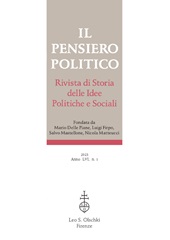Archbishop William Temple and the British welfare state : anglicanism, idealism, and the common good
2023 - Leo S. Olschki
| Article | Télécharger | Copier/coller | Impression indisponible |

P. 34-58
Code DOI : 10.1400/295230
ISSN: 2035-7958